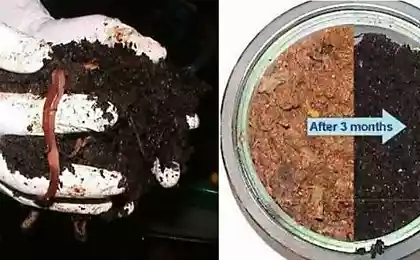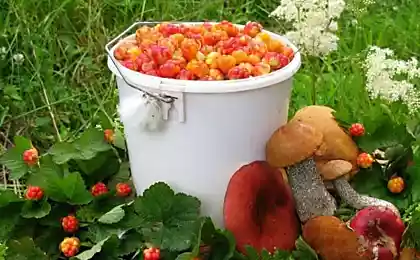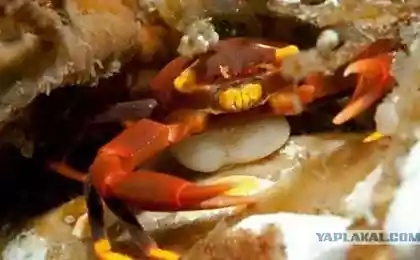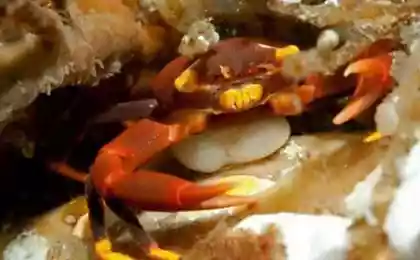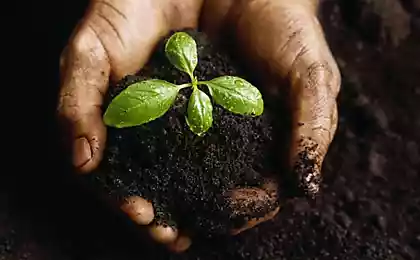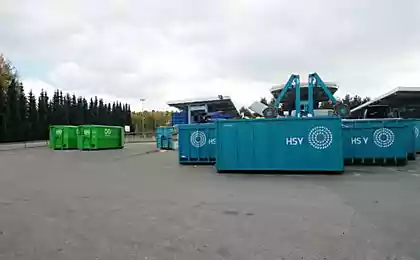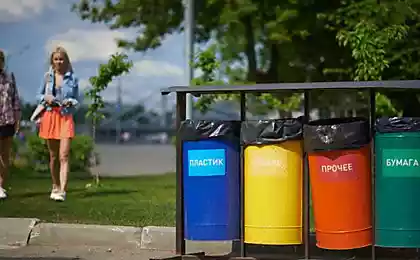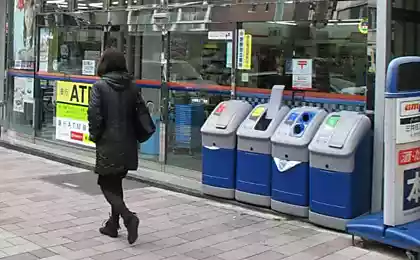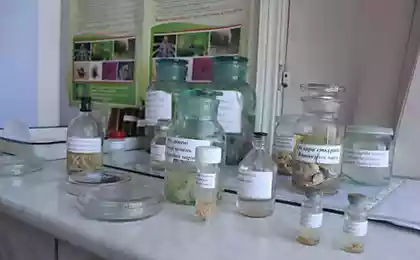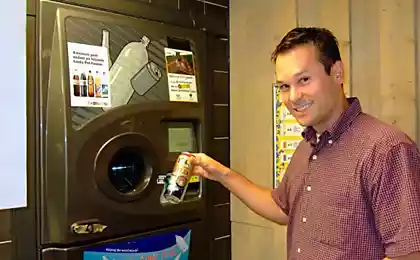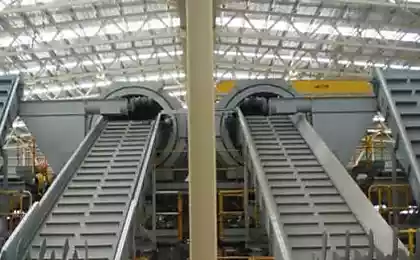503
8 reasons why you need cerifera
Imagine hundreds of slimy worms slithering through rotting vegetables. Their tiny white egg sacs lying around everywhere partially decompose and turn into completely unrecognizable leftovers. Their population doubles every three months as well as their insatiable appetite. Imagine wet clumps of muddy dirt and tiny pink bodies chewing and wriggling without any rest. Now imagine them in your living room. Welcome to the world of worm farm, or vermicomposting.
This may sound gross, but it's not as bad as it seems. In fact, every person on the planet should have at least one (preferably two) box of vermicomposting. Not everyone has a garden, but for the environmentally conscious, vermicompost is a must. This reduces waste, creates a perfectly balanced organic fertilizer requires little or no maintenance, can be stored almost anywhere, and most importantly, does not smell (if properly managed).
The following eight reasons why vermiculture, Cerveteri and composting should be available to all.
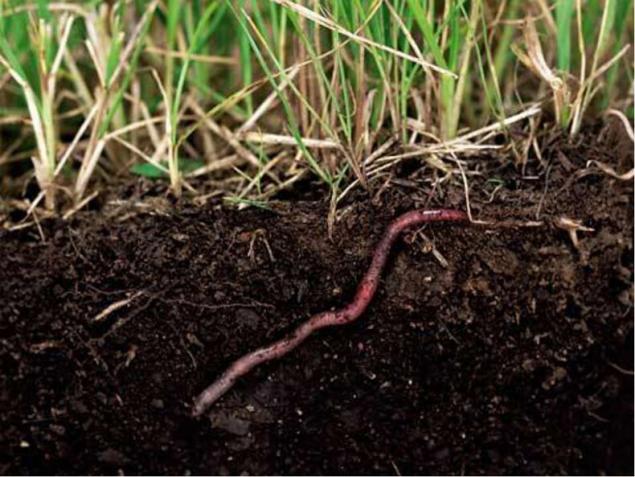
1. Waste Reduction
Treatment is gaining popularity in recent years. Vermicomposting literally eats up most, if not all, food waste at an incredible rate. Red dung and earthworm commonly used in vermiculture, they consume about half of their body mass and decompose the same number. Plus, their waste does not smell.
2. Little trouble
In addition to the periodic turning of the compost and the annual gathering of hearts, a constant supply of food waste is all that is needed to ensure that the worm farm is well functioned. The holes in the boxes allow oxygen to flow through decaying organic matter, which allows aerobic bacteria to break down the cellular structure of organic waste. While there are a few not anaerobic (without grip oxygen) in the bin, vermicompost will smell bad.
3. Can be stored anywhere
Worms hate the light! Therefore, abandoned pantry or basement is the ideal habitat for the worm farm. Without a lot of extra space worm farm can be masked as an innocent coffee table, this would require a piece of plywood and fabric. Just make sure that the removal of the compost does not become routine, so supply food permanently. The worms will multiply as long as they are available(in this case a plastic container). Less food means less worms, this means less compost. While the supply of food is relatively constant, boxes of worms will be odorless.
4. Organic fertilizer (worm castings)
Chemical fertilizers destroy local habitats by falling into nearby water sources, causing algal blooms, which reduces the amount of oxygen in the water and displace local plant species. They can also be detrimental to plants if done without making a comprehensive analysis of the soil. The plants will burn, and in severe cases can die. Fortunately, because of the enzyme in the digestive tract of the worms, the nutrients are released slowly, and they are safe in any quantity to most plant species. Plus it smells much nicer than fertilizer to manure-based.
5. Cheap or free
Vermicompost includes one or more plastic containers or buckets, food residue and dirt. A shovel and gardening gloves to turn the soil, but this is not necessary. The box can be any size, depending on the volume of waste produced. Material of the bins must not be biodegradable, if food waste will go directly to the garden. Worms can be bought in the fishing shops or special worm farms.
6. Revitalization of the soil
Worms spread their magic deep into the ground. Even the most barren soil can be brought back to life with the help of worms. It was discovered that they can even remove toxic heavy metals such as lead from the soil.
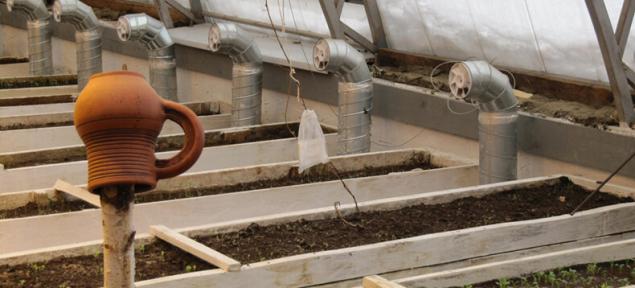
7. The smell from food waste
The smell of rotten eggs is responsible for this is a group of tiny microbes known as anaerobic (oxygen-hating) bacteria. The waste from these germs, that's what gives the smell of rotting food. This is also the cause of unpleasant smell from the garbage.
8. Vermicompost doesn't smell bad
Despite the rotting food, bacteria and a large amount of food for the worms, the vermicompost does not emit unpleasant odor.
Worms are busy converting all food residues into energy, a significant part of the original waste volume will be lost. One little worm can process the food waste of many people for a long time without needing to be emptied.
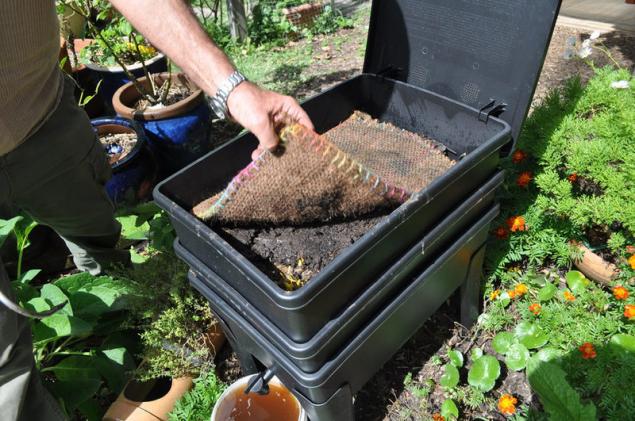
Cast iron radiators for home heating: advantages and disadvantages ofheating a country house WITHOUT gas
You can keep the worms right in your living room. Feed them with dead plants. cardboard, dust, lint, etc. All of this eventually will be processed into fertilizer. Excess worms to feed aquarium fish. They will take no more than 1 m square and five minutes a week of your precious time. If you have a garden and you are interested in natural reducing waste and high quality organic fertilizer, then you need a worm farm! published
Source: vk.com/semenaorg?w=wall-55128765_851
This may sound gross, but it's not as bad as it seems. In fact, every person on the planet should have at least one (preferably two) box of vermicomposting. Not everyone has a garden, but for the environmentally conscious, vermicompost is a must. This reduces waste, creates a perfectly balanced organic fertilizer requires little or no maintenance, can be stored almost anywhere, and most importantly, does not smell (if properly managed).
The following eight reasons why vermiculture, Cerveteri and composting should be available to all.

1. Waste Reduction
Treatment is gaining popularity in recent years. Vermicomposting literally eats up most, if not all, food waste at an incredible rate. Red dung and earthworm commonly used in vermiculture, they consume about half of their body mass and decompose the same number. Plus, their waste does not smell.
2. Little trouble
In addition to the periodic turning of the compost and the annual gathering of hearts, a constant supply of food waste is all that is needed to ensure that the worm farm is well functioned. The holes in the boxes allow oxygen to flow through decaying organic matter, which allows aerobic bacteria to break down the cellular structure of organic waste. While there are a few not anaerobic (without grip oxygen) in the bin, vermicompost will smell bad.
3. Can be stored anywhere
Worms hate the light! Therefore, abandoned pantry or basement is the ideal habitat for the worm farm. Without a lot of extra space worm farm can be masked as an innocent coffee table, this would require a piece of plywood and fabric. Just make sure that the removal of the compost does not become routine, so supply food permanently. The worms will multiply as long as they are available(in this case a plastic container). Less food means less worms, this means less compost. While the supply of food is relatively constant, boxes of worms will be odorless.
4. Organic fertilizer (worm castings)
Chemical fertilizers destroy local habitats by falling into nearby water sources, causing algal blooms, which reduces the amount of oxygen in the water and displace local plant species. They can also be detrimental to plants if done without making a comprehensive analysis of the soil. The plants will burn, and in severe cases can die. Fortunately, because of the enzyme in the digestive tract of the worms, the nutrients are released slowly, and they are safe in any quantity to most plant species. Plus it smells much nicer than fertilizer to manure-based.
5. Cheap or free
Vermicompost includes one or more plastic containers or buckets, food residue and dirt. A shovel and gardening gloves to turn the soil, but this is not necessary. The box can be any size, depending on the volume of waste produced. Material of the bins must not be biodegradable, if food waste will go directly to the garden. Worms can be bought in the fishing shops or special worm farms.
6. Revitalization of the soil
Worms spread their magic deep into the ground. Even the most barren soil can be brought back to life with the help of worms. It was discovered that they can even remove toxic heavy metals such as lead from the soil.

7. The smell from food waste
The smell of rotten eggs is responsible for this is a group of tiny microbes known as anaerobic (oxygen-hating) bacteria. The waste from these germs, that's what gives the smell of rotting food. This is also the cause of unpleasant smell from the garbage.
8. Vermicompost doesn't smell bad
Despite the rotting food, bacteria and a large amount of food for the worms, the vermicompost does not emit unpleasant odor.
Worms are busy converting all food residues into energy, a significant part of the original waste volume will be lost. One little worm can process the food waste of many people for a long time without needing to be emptied.

Cast iron radiators for home heating: advantages and disadvantages ofheating a country house WITHOUT gas
You can keep the worms right in your living room. Feed them with dead plants. cardboard, dust, lint, etc. All of this eventually will be processed into fertilizer. Excess worms to feed aquarium fish. They will take no more than 1 m square and five minutes a week of your precious time. If you have a garden and you are interested in natural reducing waste and high quality organic fertilizer, then you need a worm farm! published
Source: vk.com/semenaorg?w=wall-55128765_851
The production of rocket fuel from the water can transform the entire energy of the Earth
Small enemies: 11 habits that kill your productivity
